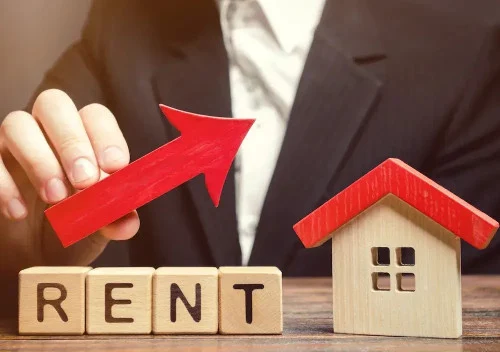Moving into your first apartment is a significant milestone, marking a new chapter of independence and responsibility. However, the financial aspects can be daunting without proper planning. From understanding rental costs to budgeting for utilities and essentials, careful preparation is key to a smooth transition. In this comprehensive guide, we will explore the essential steps and considerations for determining how much you should save before moving into your first apartment. Whether you're navigating rent prices, calculating living expenses, or considering the benefits of having a roommate, this article will provide you with practical insights to help you make informed financial decisions and ensure a successful move.
Understanding Rental Costs
The first and most significant expense to consider when planning for your first apartment is the rent. Rental costs can vary widely depending on several factors:
1. Location:
The location of your apartment has a profound impact on rental prices. Urban areas and popular neighborhoods typically command higher rents compared to suburban or rural locations.
2. Apartment Size and Type:
The size and type of apartment you choose will also influence the rent. Larger apartments or those with additional amenities (such as in-unit laundry or parking spaces) generally come with higher monthly rents.
3. Rental Market Trends:
Research current rental market trends in your desired location. Factors such as seasonal fluctuations, local economic conditions, and housing supply can affect rental prices.
Budgeting for Living Expenses
In addition to rent, it's essential to budget for other living expenses associated with your first apartment:
1. Utilities:
Plan for monthly utility expenses, including electricity, water, heating, and internet. These costs can vary depending on usage and the efficiency of the apartment's systems.
2. Groceries and Household Supplies:
Estimate your monthly grocery expenses and budget for household essentials such as cleaning supplies, toiletries, and kitchen basics.
3. Transportation:
Consider transportation costs, including commuting expenses if applicable, and factor these into your budget.
4. Insurance:
Depending on your lease agreement, you may need renters' insurance to protect your belongings and liability. Research insurance options and include this expense in your budget.
Calculating Initial Move-in Costs
Before moving into your first apartment, you'll encounter several upfront costs beyond monthly rent and utilities:
1. Security Deposit:
Landlords often require a security deposit, typically equivalent to one or two months' rent, which is refundable upon move-out if the apartment is in good condition.
2. First Month's Rent:
Be prepared to pay the first month's rent upfront when signing your lease.
3. Moving Expenses:
Budget for moving costs, including truck rental fees, packing supplies, and potential hiring of movers if needed.
4. Furniture and Essentials:
Assess what furniture and household items you'll need for your apartment. Consider purchasing essential items gradually to spread out costs.
Benefits of Having a Roommate
For many first-time renters, having a roommate can significantly reduce living expenses and financial strain:
1. Shared Rent and Utilities:
Splitting rent and utility bills with a roommate can lower your individual housing costs, making it more affordable to live in a desirable location or a larger apartment.
2. Shared Household Responsibilities:
Roommates can also share household chores and responsibilities, reducing the overall workload and potentially enhancing your living experience.
3. Financial Stability:
Sharing expenses with a roommate can provide greater financial stability and flexibility, allowing you to save more or allocate funds toward other financial goals.
Creating a Realistic Budget
Once you have a clear understanding of your expected expenses and upfront costs, it's time to create a realistic budget tailored to your financial situation:
1. List All Expenses:
Compile a comprehensive list of all anticipated monthly expenses, including rent, utilities, groceries, transportation, insurance, and any discretionary spending.
2. Calculate Your Income:
Determine your monthly income sources, including wages from employment, freelance work, scholarships, or financial assistance from family.
3. Set Financial Goals:
Identify short-term and long-term financial goals, such as saving for emergencies, paying off student loans, or investing in future education.
4. Allocate Funds Strategically:
Allocate your income to cover essential expenses first, followed by savings and discretionary spending. Ensure your budget allows for flexibility and adjustments as needed.
Savings Strategies for Your First Apartment
Saving up for your first apartment requires disciplined saving strategies and financial planning:
1. Establish an Emergency Fund:
Prioritize building an emergency fund to cover unexpected expenses, such as medical bills or car repairs.
2. Automate Savings:
Set up automatic transfers from your checking account to a dedicated savings account specifically for your apartment fund.
3. Cut Back on Non-Essential Spending:
Temporarily reduce discretionary spending on dining out, entertainment, or shopping to accelerate your savings goal.
4. Utilize Windfalls Wisely:
If you receive any unexpected windfalls, such as tax refunds or bonuses, consider allocating a portion or all of these funds toward your apartment savings.
Conclusion
Moving into your first apartment is a significant financial decision that requires careful planning and preparation. By understanding rental costs, budgeting for living expenses, considering the benefits of having a roommate, and creating a realistic budget, you can navigate this transition with confidence. Remember, effective financial planning involves not only estimating expenses but also preparing for unexpected costs and setting achievable savings goals. With these insights and strategies in mind, you're well-equipped to embark on the exciting journey of renting your first apartment and enjoying newfound independence. Happy apartment hunting!

